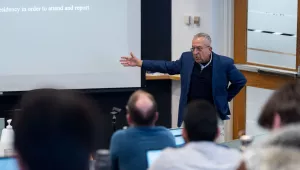Nigerian thinkers are worried that their own country remains unstable and hard to govern. The nation still lacks unity; fissiparous tendencies are many, ethnic and sectarian conflicts are unmanaged, and violent ways of settling communal conflicts over resources are much too close to the surface. Post-military national democratic leadership has been less effective than many would have wished.
Nigeria’s federal system gives too little autonomy and authority to the nation’s thirty-six states, and unfairly, some say, deprives them of revenue from oil. All police forces are national, although many governors rely on quasi-legal militias. Human rights abuses, especially against women, are common, and many Nigerians fear for their personal security. The future role of the shari’a is still unsettled, and its constitutional legitimacy remains divisive and worrisome.
Corruption is omnipresent, as it would be in a petrostate where the gulf between rich and poor, privileged and unprivileged is great and growing. Civil society and the press are strong, however, and there is an atmosphere favorable to accountability even if local, state, and national governments all find ways to evade responsibility.
The future of Africa’s largest state, a critical petroleum supplier to the U. S., thus continues to be of enormous concern to Nigerians, to policymakers in Africa and the United States and Europe. This report includes impressive and detailed diagnoses of Nigeria’s many challenges, and recommendations about how the nation may strengthen itself and its place in the world.
West, Debbie. “Governing Nigeria: Continuing Issues after the Election.” World Peace Foundation, June 1, 2003





